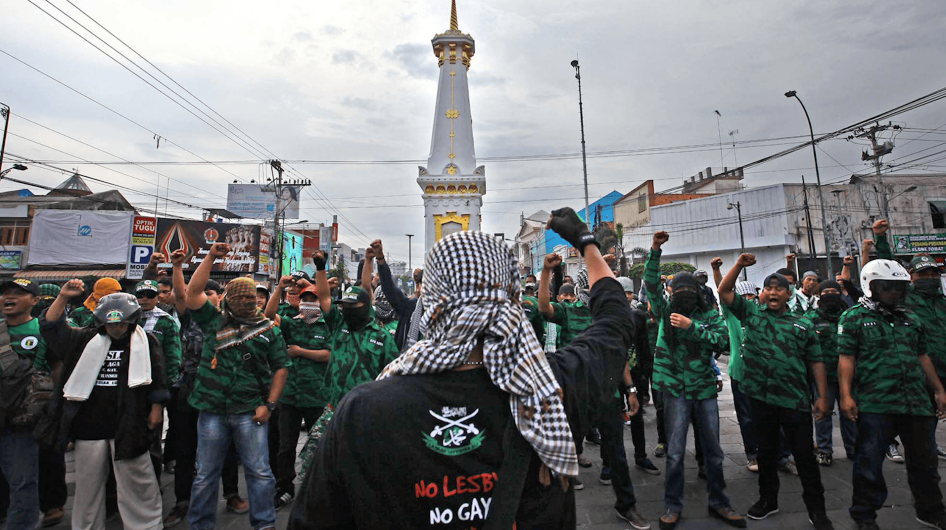(New York) – Indonesia’s Constitutional Court will hold its fifth hearing on August 23, 2016 on proposed revisions to the country’s criminal code that would punish consensual same-sex behavior and increase penalties for sexual activity out of wedlock, Human Rights Watch said today.
The proposed legislation, which carries penalties of up to five years in prison, violates internationally protected rights to privacy and nondiscrimination, Human Rights Watch said. The court is being asked to rule on the constitutionality of proposed changes to the criminal code brought by petitioners led by professors from the Bogor Agricultural Institute, near Jakarta. They are seeking amendments to laws on adultery (art. 284), rape (art. 285), and sex with a minor (art. 292) in Indonesia’s criminal code.
“The proposed criminal sanctions before the Constitutional Court are not only a threat to LGBT people, but to all Indonesians,” said Graeme Reid, LGBT rights director at Human Rights Watch. “Laws that threaten privacy inevitably affect everyone.”
Privacy rights are a fundamental protection that underlie everyone’s physical autonomy and preferred identity, Human Rights Watch said. In the 1994 case of Nicholas Toonen v. Australia, the United Nations Human Rights Committee, the independent body of experts that interprets the International Covenant on Civil and Political Rights (ICCPR), to which Indonesia is party, repudiated the state of Tasmania's criminal law against consensual adult same-sex behavior between men -- or sodomy -- declaring “it is undisputed that adult consensual sexual activity in private is covered by the concept of ‘privacy.’”
In 2013 Indonesia co-sponsored a UN Human Rights Council resolution on the right to privacy. In the report on that resolution, the UN high commissioner for human rights reminded governments that privacy rights (enshrined in ICCPR article 17) should be upheld jointly with the right to non-discrimination (ICCPR article 26).
“The Constitutional Court has an important opportunity to strengthen the right to privacy and non-discrimination in Indonesia,” Reid said. “At stake in the proposed laws are the privacy rights of all Indonesians—the bedrock of a society in which individual dignity is protected for everyone.”










